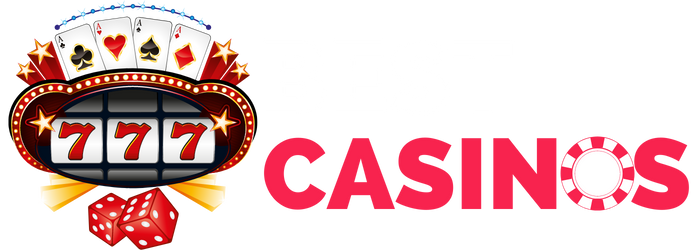The history of humanity is inextricably linked to the origins of gambling. No matter how far back in antiquity you go, there appears to be evidence that gambling was likely to have occurred when groups of people met together. In this piece, we will not attempt to recount every twist and turn in the origins of gambling. We’re attempting to highlight some of the crucial points that might be considered milestones on the path to today’s gambling expertise.
The Earliest Record of Gambling
The activity of gambling extends back much deeper than history, and its precise Origins of gambling are unknown. Evidence of gambling behaviours has been uncovered in various countries worldwide, including Egypt, Greece, China, and Japan, with some reaching back to 2000 B.C.
Gambling dice are possibly the earliest instruments, having been devised approximately 3000 BC in Ancient Mesopotamia. The dice were made from sheep bones, particularly the knucklebones. Gambling dice are also referenced in various ancient writings worldwide, including the Indian Vedas and even the Bible tracing back to the Origins of gambling.
In 200 B.C., the Chinese used goods as cash to finance government initiatives, according to historical documents. The item was known as Keno Slips. Numerous academics have also agreed that the first card game was developed in China in the nineteenth century. The gambling game’s rules, and advice, have been lost to the Origins of gambling.
In China, tiles have been uncovered that show people used them for a lottery-style game. Commoners also wager on animal fights, and some Chinese kings have been accused of spending the state’s resources on gambling. In 200 BC, the government also employed Keno slips to raise revenue. The Ancient Greeks were also big gamblers, as proven by various Homeric epics that frequently mention gaming. Greek troops entertained themselves with gambling games, much to the authorities’ anger, who outright prohibited the activity. The earliest known dice were unearthed in Egypt’s Thebes.
The Middle Ages
The status of gambling altered multiple times during the Middle Ages. Some nations, such as Italy and Germany, legalised gambling, while others, like France and England, adopted a tougher position. Some kings, like King Louis IX, outright prohibited the practice.
Historians agree that the earliest connection to the Origins of gambling was playing cards used in China in the 9th century. However, the cards played with the cards still need to be discovered since the cards differ from those used in current card games. Initially, human figures were used to design the cards, but as the games expanded over Europe, Kings and Queens were incorporated.
During the Eastern Crusades, Christian nations permitted only noble and high-status individuals, such as knights, to gamble. Gambling was considered a privilege for the elite and a terrible habit for commoners. It is challenging to figure out the origin of gambling as it dates far back, even before known history. Commoners who were detected gambling would suffer a terrible punishment. Returning knights bred horses, which fuelled the popularity of horse racing wagering.
Colonial Period
Native Americans played gambling games before the advent of the first European colonists in the Americas. The games were seen as an essential aspect of their culture and frequently featured in tribe rites and celebrations. They thought the gods created the games and were used to foresee the future. Its roots are back to the Origins of gambling.
The first gambling establishment was created in Italy in the 17th century, followed by countless additional private gaming dens. Gambling houses offered gamblers more structured and regulated situations. Different game versions and traditions were also brought to the Americas by early European settlers.
Lotteries were prominent fundraising methods in the 18th and 19th centuries. During the Revolutionary War, its use was to support the Continental Army. Lottery monies were also important for many civic objectives since Yale and Harvard were founded using lottery revenues.
Before the introduction of commercial betting, social betting was the norm. In 1795, Harry Ogden became the first bookmarker when he placed the odds and received bets at the horse races at NewmarketThe Great Depression in the United States culminated in the legalisation of gambling and the removal of alcohol prohibition.
Victorian Period
After the federal government loosened gambling regulations, numerous states legalised gambling again, and casinos popped up nationwide. To give additional diversity to the early casinos, new and improved versions of casino games were invented. Although organised crime was actively involved in the operation of casinos, it was later superseded by large companies.
Mediaeval gambling has grown highly mechanical. It has improved the accuracy and effectiveness of gaming regulation. Gambling is also permitted in the majority of countries throughout the world. In New York, Sittman and Pitt created the first gambling machine. The video slot machine, considered a forerunner of current internet video slots, was invented in 1976 but gained popularity in the 1980s.
Microgaming, one of the leading casino game providers in business today, began developing early online gambling software in the mid-1990s. The first virtual casino opened in 1994, and Planet Poker was the first online poker club to accept real money in 1998. The Kahnawake Gaming Commission, which was founded in 1996, is in charge of providing international gaming licences to the majority of online casinos and poker rooms.
Tracing the Origin of Gambling through Games
Dice Rolling for a Game of Chance
According to the Greek poet Sophocles, a mythological hero manufactured dice during the simple assault of Troy. Sophocles’ writings first addressed dice and how people began gambling in Greek history around 500 B.C. However, archaeologists discovered evidence of a set of dice in an Egyptian tomb dating back to 3000 B.C. Through his work, we learn about the Origins of Gambling.
Romans and Ancient Greeks were known to like wagering only personal goods in a game. However, within the city of Rome, all types of gambling, including dice, were prohibited. People found gambling in Rome had to pay a heavy fine for quadrupling their bets.
Baccarat
Baccarat, a card game, was one of the first gambling games invented and is still played in casinos today. The rules were first documented in the 1400s, and each player had to carry two or three cards. The winner is selected with the highest remaining after dividing their cards by 10. It is how humans began gambling with cards.
Blackjack Throughout Time
Some experts believe an early version of the blackjack we know today existed. Blackjack originated in Spain, and the game is known as Ventiuna, which translates as twenty-one. Ventana was undoubtedly the first form of the game we know today, dating from the seventeenth century through the Origins of gambling.
Blackjack was an American invention, and it was specifically associated with advertising casinos in Nevada in the 1930s. They designed the game with 1 to 10 odds for each participant to attract more potential players. Only an Ace of Spades and a black Jack of Clubs or Spades will allow the player to win.
The Little Wheel of Paris
The game began at gaming establishments in Paris. The Roulette wheel we are all acquainted with today is comparable to the American Roulette wheel. However, the game took around fifty years to be perfected to the level we know today. It had only one zero on the Roulette, which generations of roulette players have appreciated.
During the nineteenth century, the gambling game Roulette gained prominence. The game expanded throughout Europe after the world’s most famous casino, Monte Carlo, adopted the most recent version of the game. However, Americans prefer games with the original twin zero on the wheels rather than simply one.
The History of the Poker Face
It is difficult to identify the precise time when Poker began. It was developed through decades or centuries of playing various card games. In Persia, versions of the gambling game date back to the sixteenth century. Others, however, claim that the game was inspired by the French game Poque.
The game’s popularity grew slowly until international poker tournaments began in Las Vegas in the 1970s. However, the advent of internet poker and television events enabled viewers to comprehend their hands. Anyone may become a billionaire in online Poker, just as Chris Moneymaker, an amateur who qualified for and won the World Poker Championship Online in 2003.
The Challenging Slot Machines
Ms Sittman & Pitt’s New York invention used 52 cards on drum reels to create a game of chance similar to Poker. The first gambling machine is a variation of the game’s early origins, similar to the slots we know today.

Gambling on Mobile
Since New Jersey legalised internet gambling in 2011, people’s interest in online gambling games has skyrocketed. In America, they are now attempting to legalise gambling games on a state-by-state basis. At the same time, they are seeing an increase in mobile gaming. Internet users are gradually shifting away from their bulky desktop computers to portable mobile devices. It is also true for online gambling games, which allow gamers to play on the go.
Conclusion
When it comes to gambling, it is tough to forecast what the next breakthrough will be because technology is always changing how it is played. However, as we learn more about the origins of all gambling games and how humans began gambling, producers are attempting to return to the Origins of gambling. We are now in a technologically dependent generation, so we focus on the mobile game sector. Having online casinos with gambling games may improve profits while also providing convenience to players. Because of technological advancements, you can now play a game of Poker with your buddies regardless of time or location.
FAQ’s
1) When did gambling begin?
Gambling has been around since the Paleolithic period, before written history. The first six-sided dice were discovered in Mesopotamia around 3000 BCE. They were, however, based on astragali, which dates back thousands of years.
2) Who was the first to create gambling?
The first-ever kind of gaming came from Ancient China and described the earliest time when and how humans began gambling. Based on a reference in the Chinese classic “Book of Songs” to a wood sketch, the tiles might have formed a component of a lottery game.
3) What are the three kinds of gambling?
Although sports betting and casinos are the most popular gambling, several other types are available, such as playing the lottery, bingo, or scratch card games.
4) What is the gambling golden rule?
In layman’s words, “never gamble if you can’t afford to lose” - you never want to be in debt due to a gambling problem. It is the first guideline for gamblers to follow to have effective money management skills.
5) Why do people gamble?
Risk. It’s human nature to want to take risks, which is why gambling’s unpredictable conclusion is so tempting. The prospect of winning, regardless of how much a person has lost, is enough to keep individuals coming back. The more money gambled, the greater the danger, which heightens the excitement of the gamble.




